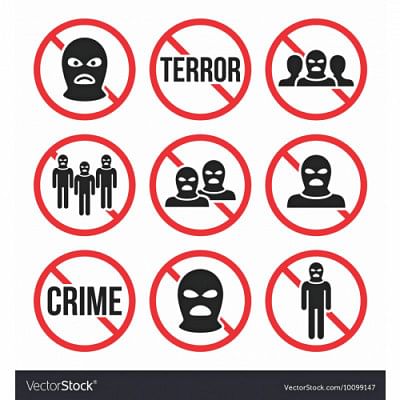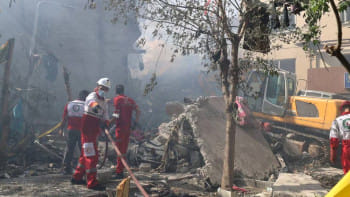Reflecting on the Anti-Terrorism Act 2009

2019 Global Terrorism Index says that Bangladesh is the most successful South Asian country in countering terrorism. The observations made by the Global Studies require an analysis of the legislative endeavours made by Bangladesh in combating terrorism.
The Anti-Terrorism Act was enacted in 2009 and subsequently it got amended in 2012 and 2013. In 2012, a major amendment was brought in by providing capital punishment for certain crimes committed under the Act. The amendment made in 2013 provided that any discussion and conversation through Facebook, Skype, Twitter or any other internet site by the terrorist person or entity or still picture or video involving their offence, presented by the police or law enforcement agency to the Court for the purpose of investigation, shall be treated as evidence to the Court. The Act fixes time limit for completion of investigation by saying that any police officer shall complete the investigation of any case within sixty days of the date on which information is received or recorded under section 154 of the Code of Criminal Procedure.
Section 6 of the Act defines terrorist activities. Among others, it says that if any person, entity or foreigner - for the purposes of threatening the unity, integration, public security or sovereignty of Bangladesh by creating panic among the public or a section of the public with a view to compelling the Government or any entity or any person to do any act or preventing them from doing any act - kills, causes grievous hurt, confines or kidnaps any person or attempts to do so, then the person, entity or foreigner shall commit the offence of ‘terrorist activities’.
The section further says that if any person, entity or foreigner, for the foregoing purposes, damages or attempts to damage any property of any person, entity or the State; abets or instigates any person to murder, injure seriously, confine or kidnap any person; or abets or instigates to damage any property of any person or entity or the State; or uses or keeps in possession any explosive substance, inflammable substance and arms for the purposes mentioned, then the person, entity or foreigner shall commit the offence of ‘terrorist activities’.
The Act does not explicitly outlaw recruitment and travel in connection with terrorism; however an array of mechanisms comes within the purview of the broad language of the Act in order for Bangladesh to implement UN Security Council Resolution 2178 (2014) on dealing with the Foreign Terrorist Fighters. If not under the domestic anti-terrorism law, Bangladesh can press other charges under other existing laws against the Foreign Terrorist Fighters.
Bangladesh is a member of the Asia Pacific Group on Money Laundering. The Central Bank of Bangladesh (Bangladesh Bank), alongside the Bangladesh Financial Intelligence Unit (BFIU), leads the State’s efforts in order to comply with the international anti-money laundering or countering the Financing of Terrorism (AML/CFT) standards and international legal sanctions regimes. In the year 2013, Bangladesh Government also enacted the Rules to combat terrorism, namely the Anti-Terrorism Rules 2013. The Rules lay down the procedure of freezing of accounts, funds and assets of individuals and groups in connection with terrorism. The Rules also have a provision (rule no. 15) that provides for the procedure for unfreezing of funds, financial assets or related services of individuals or entities inadvertently affected by the freezing mechanisms upon verification that the person, entity or group is not a listed as a terrorist individual as such.
The Anti-Terrorism Act of Bangladesh outlaws the receipt and collection of money, services or support where ‘there are reasonable grounds to believe that the same has been used or may be used for any purpose by a terrorist entity’. The Act prohibits membership in or support of internationally listed terrorist entities (under the UN Security Council ISIL or ISIS and al-Qai’da sanctions regime). The Act also provides for a wide and comprehensive framework providing for mutual legal cooperation among nations on matters in relation with terrorism and to have an international forfeiture mechanism with regard to assets involved in terrorist activities.
Section 28 of the Act states that the Government may constitute one or more Anti-terrorism Special Tribunals for speedy and effective trial of the offences committed under the Act. Fourth chapter of the Act is dedicated towards the proscription, enlistment and implementation of the United Nations Security Council Resolutions with regard to terrorism.
Even though Bangladesh has come up to be a poster child in the region in setting major examples in combating and countering terrorism with a multidimensional approach featuring legislation, law enforcement and the Central Bank, certain human rights organisations opine that the broad definition of terrorism as it appears in the Act of 2009, makes the law prone to ‘abuses and repression against political opponents, journalists and certain other dissenting voices’.
From Law Desk.

 For all latest news, follow The Daily Star's Google News channel.
For all latest news, follow The Daily Star's Google News channel. 



Comments